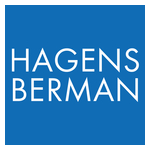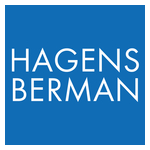Class-action lawsuit says hotel companies colluded with third party, Rainmaker, in massive Las Vegas Strip collusion, price-fixing
LAS VEGAS–(BUSINESS WIRE)–$CZR #antitrust–Consumers who rented hotel rooms on the Las Vegas Strip filed a class-action lawsuit today accusing 4 of Vegas’ largest gaming and hospitality companies of engaging in an illegal price-fixing scheme to raise the cost of hotel rooms, according to Hagens Berman.
The lawsuit alleges that Rainmaker, a revenue management platform used by an estimated 90% of Vegas Strip hotels, collects real-time pricing and supply information from competitors and provides room rental rate recommendations designed to unlawfully maximize profits for its hotel operator users. Attorneys say this algorithmic-driven price-fixing comes at the expense of consumers and in violation of antitrust laws.
Attorneys say that in a competitive market, hotel operators would price rooms independently and would fill as many rooms as possible. The sharing of pricing and capacity information through Rainmaker has displaced normal competitive pricing and lead to increased room prices, according to the lawsuit, and antitrust academics have roundly criticized this type of price and supply exchange as anticompetitive.
If you’ve rented a hotel room on the Las Vegas Strip on or after Jan. 25, 2019, you may have overpaid. Find out more about your potential rights against Vegas hotel operators.
The lawsuit names as defendants Caesars Entertainment, MGM, Treasure Island, Wynn, Rainmaker, and Cendyn for their involvement in the alleged price-fixing scheme.
“Our antitrust attorneys have uncovered what appears to be an unlawful agreement in which Rainmaker collects and shares data between Vegas hotel competitors to unlawfully raise prices of hotel rooms,” said Steve Berman, managing partner of Hagens Berman and attorney seeking to represent consumers in the case. “What happens in Vegas will no longer stay in Vegas. We intend to expose the under-the-table deals perpetrated by these Vegas hotels, and we intend to hold them accountable.”
Numbers Game
According to the lawsuit, Las Vegas hotel room prices are currently at record highs.
Rainmaker advertises 15% revenue growth for its hotel operator users, and testimonials on the website for its parent company, Cendyn, describe implausible performance during market downturns and even the COVID-19 pandemic. The lawsuit quotes a Cendyn hotel customer claiming to have produced 70% of the prior year’s revenue with 50% of the volume despite closures and restrictions throughout the pandemic.
The named hotel operators hold a significant share of Vegas Strip hotels, collectively controlling approximately 20 of the 30 total available, including Caesars Entertainment (Flamingo, The Linq, Caesars Palace, Harrah’s, Horseshoe, The Cromwell, Paris and Planet Hollywood), MGM Resorts International (Excalibur, Luxor, MGM Grand, Park MGM, New York New York, Bellagio, Mandalay Bay, CityCenter and Cosmopolitan), Treasure Island and Wynn Resorts (Encore and Wynn). The lawsuit states that defendants’ control of the market enabled the scheme.
Each of the defendant operators relied on Rainmaker’s algorithms to provide pricing recommendations. Rainmaker’s algorithms focused on maximizing Defendants’ profitability, at the expense of competition. The lawsuit quotes a Rainmaker VP of revenue analytics stating, “the ultimate goal is not chasing after occupancy growth, but instead maximizing profits across all revenue streams.” This is contrary to a free and fair market, the complaint states, where producers increase their revenue by growing their supply, not restricting it.
“By incentivizing its users to suppress the supply of hotel rooms, Rainmaker artificially drove up prices and directly harmed consumers,” said Berman. “These corporations created a scenario in which the house will always win, and they’ve broken the law to do so.”
The lawsuit states that Rainmaker’s proprietary software, Guestrev, analyzes hotel clientele and makes dynamic pricing recommendations based on this data, “to help ensure the properties reward the right customers with the right rates at the right time.” The complaint goes on to say that Cendyn has specifically contrasted this pricing strategy to hotel operators’ prior approach, wherein all guests were charged either a standard rate or a frequent gambler rate. Rainmaker also offers a program called RevCaster, which it explicitly advertises as a method for users to monitor competitor pricing and occupancy rates.
The lawsuit brings claims for violation of the Sherman Antitrust Act against hotel operators for their use of Rainmaker software. Hagens Berman seeks to hold the defendants liable for repayment to those who have overpaid as a result of the scheme.
Find out more about the consumer lawsuit against Vegas hotel operators.
Hagens Berman is a global plaintiffs’ rights complex litigation law firm with a tenacious drive for achieving actual results for those harmed by corporate negligence and fraud. Since its founding in 1993, the firm’s determination has earned it numerous national accolades, awards and titles of “Most Feared Plaintiff’s Firm,” MVPs and Trailblazers of class-action law. More about the law firm and its successes can be found at www.hbsslaw.com. Follow the firm for updates and news at @ClassActionLaw.
Contacts
Ashley Klann
pr@hbsslaw.com
206-268-9363



